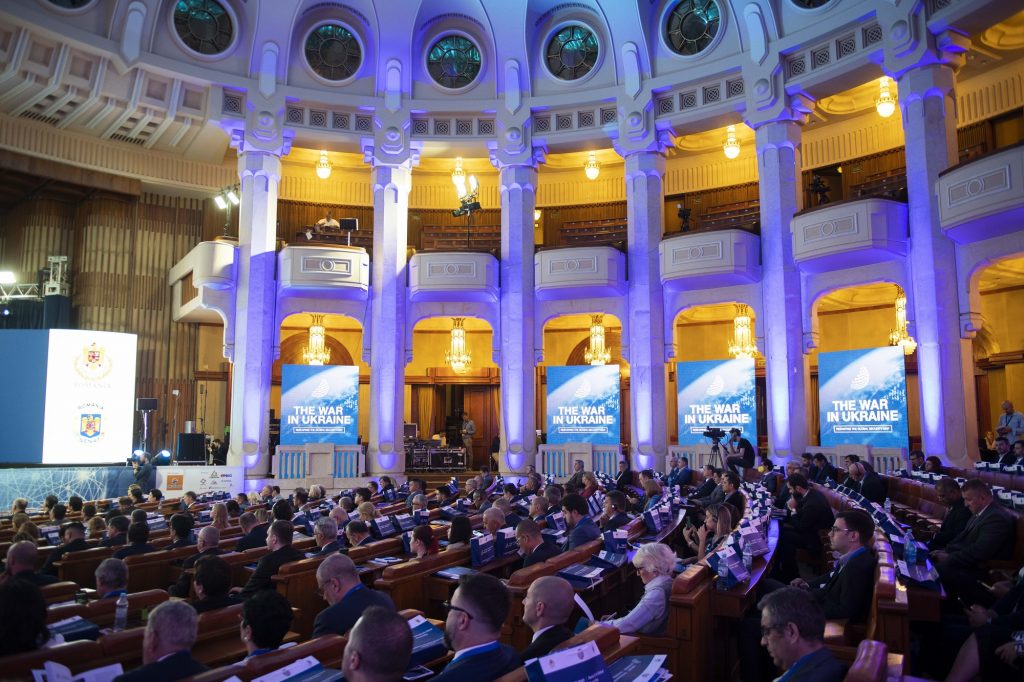
Excerpts from Irene Rosberg’s address at the 22nd Parliamentary Intelligence-Security Forum in Bucharest on the role of maritime transportation in food security
Food security is hugely dependent on secure transportation. Maritime logistics is considered the heart of the food distribution process and the main stage of the value chain. With the increase of both man-made and natural catastrophes around the world, seaborne logistics needs to be effectively and expertly managed in order to alleviate suffering and save lives.
According to research, around 800 million people are going without adequate sustenance. The reason for that is not, as many believe, a fundamental scarcity of food; it is because food is mainly out of reach for large sections of the population, meaning that accessibility and affordability are the real challenges. Further, logistics operations that are inefficient result in almost 50% of food being wasted.

In the increasingly interconnected world in which we live, the international community has the responsibility to learn from the Ukraine crisis that such emergencies no longer affect just the region at the centre of disruption but can quickly escalate into chaos on a global scale. The root cause of the food crisis is market concentration and any drop in supplies on such a thin market can be disastrous for the entire world.
The essential role that maritime transport plays in food security has become more and more difficult since the war. It is therefore necessary for policy makers to provide some relief for companies that take the risk of entering the war zone to transport supplies. Could there be some subsidies considered for companies trading in the Black Sea, where insurance premiums are skyrocketing? Could there be any assistance for those companies serving countries which formerly relied on food imports from Ukraine and Russia and today have to buy from more distant destinations such as Canada and Australia which entails more voyage expenses? All these cost pressures associated with transportation further increase what consumers have to pay to put food on the table, and for many in low income countries this is simply not affordable. Targeted relief for maritime transportation could help to ease this situation.
We have 300+ experts with extensive management experience in this field of shipping and logistics in our Blue MBA Alumni Association and are ready to help in creating a task force to deal with urgent issues.

